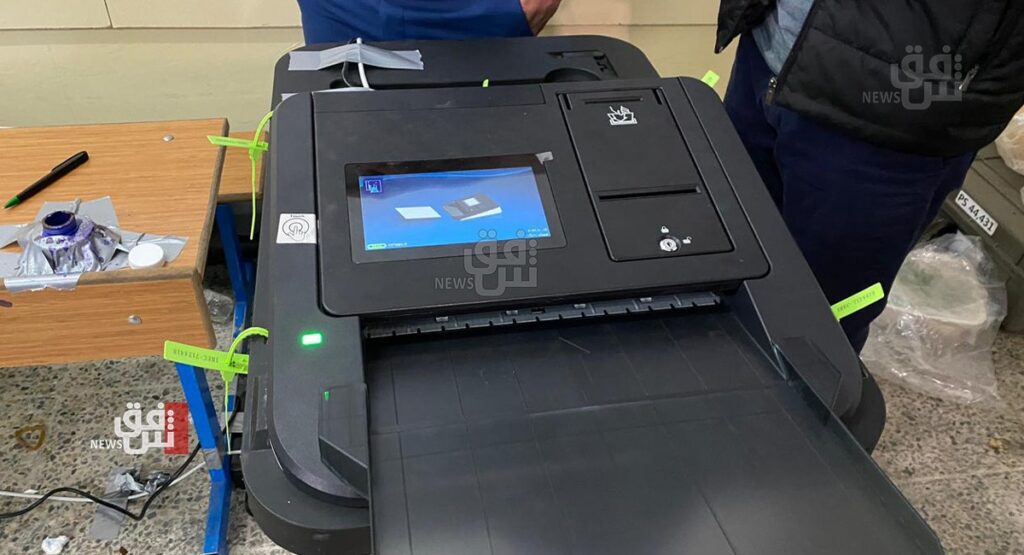Shafaq News reports that the political landscape in Iraq is experiencing significant shifts due to ongoing revisions of electoral laws aimed at boosting women’s involvement in decision-making. While some progress has been made in occupying specific political roles, Iraqi women continue to encounter substantial obstacles that impede their full representation in both parliament and government.
Iraqi Women’s Political Representation
The Vice President of the Iraqi Women’s Association, Suhaila Al-Asam, shared with Shafaq News that “the representation of women in the Iraqi parliament is notably weaker in comparison to men. This gap illustrates the societal and cultural restrictions that curtail women’s political participation.”
Al-Asam further emphasized the limited political impact of women, observing that their involvement is frequently confined to “women’s quota seats,” which diminishes their true influence on policy-making.
Political analyst Nawal Al-Mousawi remarked to Shafaq News, “We have yet to see a woman in a leadership role within the State Administration Coalition, nor an Arab political party led by a woman. Currently, the government only has three women holding ministerial positions.”
She also stated, “The electoral law includes a 25% women’s quota which is a fixed requirement that should not be altered, as changing it could jeopardize women’s chances and lower their representation. The recent amendments and additional laws impact the participation of independent candidates—both women and men—leading to a parliament that is primarily controlled by established parties, which makes decisions based on their own preferences and ideologies.”
Electoral Systems Shaping Opportunities for Women
Experts point to the multi-district system as a vital tool for improving the representation of women and independent candidates in parliament, as it has enabled numerous independent lawmakers to secure seats. Conversely, the Saint-Lague system is seen to favor large parties with extensive support networks and significant financial backing, marginalizing independents and women outside of these dominant groups.
Ibtisam Al-Hilali, leader of the Al-Nahj Al-Watani bloc, underscored the importance of the multi-district system for women: “This approach has allowed 97 female MPs to enter the Iraqi parliament by obtaining the highest number of votes.”
In contrast, electoral expert Ahmed Al-Karkhi asserted, “Women are assured of at least 25% representation in parliament, regardless of the electoral system, whether it be the Saint-Lague or multi-district systems. The women’s quota guarantees their political rights.”
The new electoral law stipulates the application of the Saint-Lague system, converting each province into a singular electoral district and reducing the number of electoral districts in Iraq to just 18, as opposed to the previous setup of 83 districts seen in the 2021 elections.
The multi-district system enabled candidates to win based on securing the highest votes, thus providing independents with a greater opportunity to enter parliament. However, many observers argue that the Saint-Lague system complicates this process through mathematical formulas favoring larger parties, thereby making it more challenging for independents and less conventional candidates to succeed.
Amending Iraq’s Electoral Law
Abbas Al-Mousawi, an adviser to the State of Law Coalition (SLC), disclosed that initiatives to amend the electoral law are not limited to his coalition but resonate with other political blocs that view such amendments as essential for reshaping Iraq’s political dynamics. He noted that while discussions about drafting a new electoral law are underway, no specific proposals have been advanced yet.
Regarding the stages the proposed amendments will undergo, Al-Mousawi stated, “The Coordination Framework is the primary political platform for discussing the proposed changes. Once there is preliminary agreement within the Framework, the form of the new law will be established, subsequently moving to the State Administration Coalition for consultations with government-affiliated political blocs to secure broad consensus.”
He further explained that these amendments aim to rectify issues identified in past electoral laws, such as inconsistencies in provincial representation and the sidelining of certain blocs and parties. “The State of Law Coalition intends to propose an amendment that encourages wider participation from various blocs and ensures their acceptance without major objections,” he added.
Observers emphasize that any changes to the 2018 Electoral Law (No. 12) must include mechanisms that assure effective female representation in political leadership, enhancing women’s roles in decision-making. They also advocate for tackling deeply-rooted social and cultural challenges that hinder women’s progress.
The ongoing barriers present a significant challenge for women in politics. Political analyst Nawal Al-Mousawi noted, “Women confront more social issues than political ones. The dominant cultural norms in some Iraqi communities may restrict women’s political contributions, often perceiving them as unfit for substantial political responsibility.” She articulated that these views often dissuade women from receiving backing from political parties or the electorate.
Al-Mousawi further highlighted the personal dangers faced by female politicians, stating, “Female politicians frequently face escalating attacks, particularly in the lead-up to elections. Many encounter threats of violence or harassment—both direct and indirect—disheartening numerous women from participating in political endeavors.”
The State of Law Coalition is now making a fourth attempt to amend the electoral law, just a year after the third amendment, which was implemented during recent provincial council elections but not for parliamentary elections. The coalition argues that a comprehensive law is necessary to encompass a broader voter base and reflect the aspirations of citizens.
“State of Law advocates for a comprehensive electoral law that engages the largest number of citizens and accounts for their desires. The push for reform does not signify an endorsement of any singular law; rather, it signifies a commitment to work collaboratively with political blocs to formulate a law free from flaws,” Al-Mousawi elaborated.
Activist Suhaila Al-Asam called for an electoral framework that transcends mere quotas to ensure substantial representation. She contended, “While quotas can increase the number of women in parliament, they do not assure effective participation unless these positions are filled by women with political acumen and capabilities.”
Al-Asam concluded, “An electoral law that serves women must introduce effective measures to guarantee their genuine representation in political leadership and decision-making, while also addressing the cultural and societal barriers that impede their progress.”


